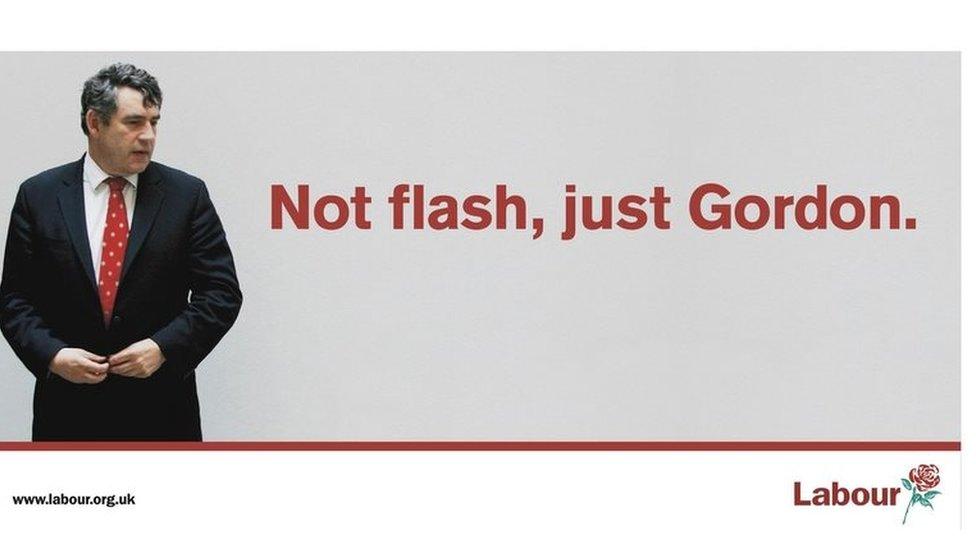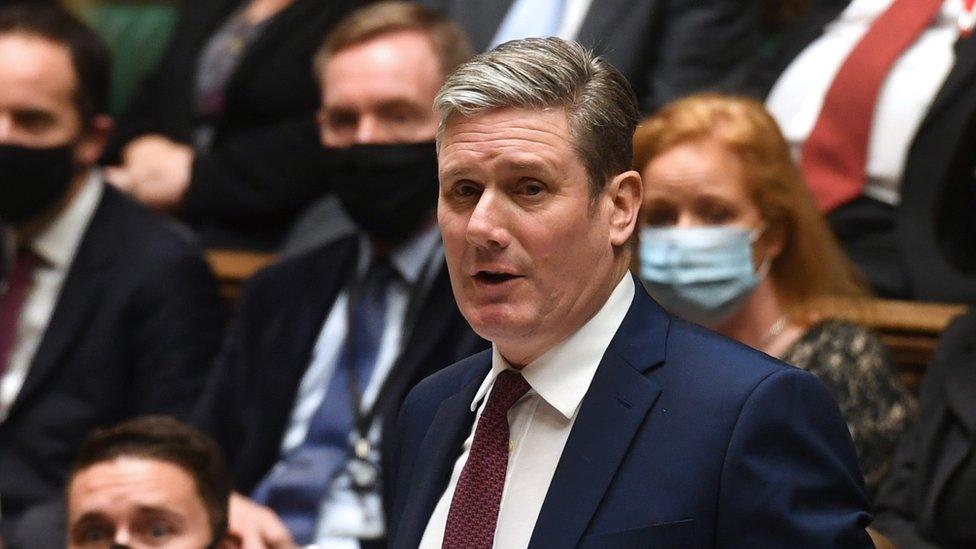Sir Keir Starmer vows to restore trust if he wins power
- Published
Starmer: The government is unworthy of voters' trust
Sir Keir Starmer has sought to capitalise on Boris Johnson's recent troubles by promising to restore trust in government if he wins power.
In a new year speech, the Labour leader announced a "contract with the British people", he said he would offer "security, prosperity and respect".
He said Boris Johnson had lost moral authority and, in contrast to the PM, he would offer "straight leadership".
The Conservatives dismissed the speech as the "same old platitudes".
It comes after opinion polls showed a Labour lead, external for the first time since Mr Johnson came to power.
Standing in front of two union flags, Sir Keir said Labour was a "deeply patriotic party" whose electorally successful leaders - Clement Attlee, Harold Wilson and Tony Blair - had enacted reforms "rooted in the everyday concerns of working people".
He also said that 2022 is a big year for the country, with the Queen's Platinum Jubilee and Birmingham hosting the Commonwealth Games later in the year, as well as both England's men's and women's football teams competing for international honours.
And he added that 2022 is the first year in which the UK needs to tackle some "big challenges" including "repairing after the pandemic, combating the climate crisis; and making Brexit work".
He said: "I believe that the best still lies ahead for this country. But only if we have the courage to create a new Britain. A country in which you and your family get the security, prosperity and respect you deserve."
But he added that the Conservatives were "too busy squabbling" over Boris Johnson's leadership of the party to offer leadership to the country.


This New Year political curtain raiser was Sir Keir Starmer aiming to capitalise on a bumpy few months for the prime minister and emphasise how he sees himself as very different.
It was an attempt to make a virtue out of being serious, even boring, in comparison to Boris Johnson.
When he offered "straight leadership" it was pretty obvious the point he was making.
Ever the lawyer, he offered a "contract" with voters, what he called a "solemn agreement".
When he said "I don't think politics is a branch of the entertainment industry. I think it's the serious business of getting things done" I was reminded of a political advertising campaign from 15 years ago.
The man at the centre of that? Gordon Brown.
Labour's slogan "Not flash, just Gordon" was also an attempt to sell being serious, in contrast to Tony Blair, who he had just replaced as Labour leader and his political opponent David Cameron.


Sir Keir said the government had lost the "moral right" to set new Covid rules, adding: "the British people do not like being taken for granted. And they do not like being taken for fools".
He also highlighted looming tax increases and rising prices, predicting that a "cost of living crisis" would become a "major story" in the spring.
He also talked about crime - one of the PM's key policy areas - claiming that "too many people do not feel safe in their streets".
He also took a swipe at the prime minister's character by saying: "I don't think politics is a branch of the entertainment industry. I think it's the serious business of getting things done".
Reacting to previews of the speech, Conservative Party chairman Oliver Dowden said: "New year, same old platitudes from Keir Starmer".
"Instead of building trust with the British people, he's out of touch and without a plan for Britain's future," he added.
In a torrid few weeks, Boris Johnson has faced reports of parties at Downing Street while Coronavirus restrictions were in place, a backbench rebellion over Covid rules - which only passed because of Labour backing - and a defeat to the Liberal Democrats in the North Shropshire by-election.
This followed weeks of damaging headlines over the autumn after his botched attempt to block a suspension for now ex-Tory MP Owen Paterson, who was found to have breached Commons rules on paid lobbying.
Related topics
- Published15 December 2021
